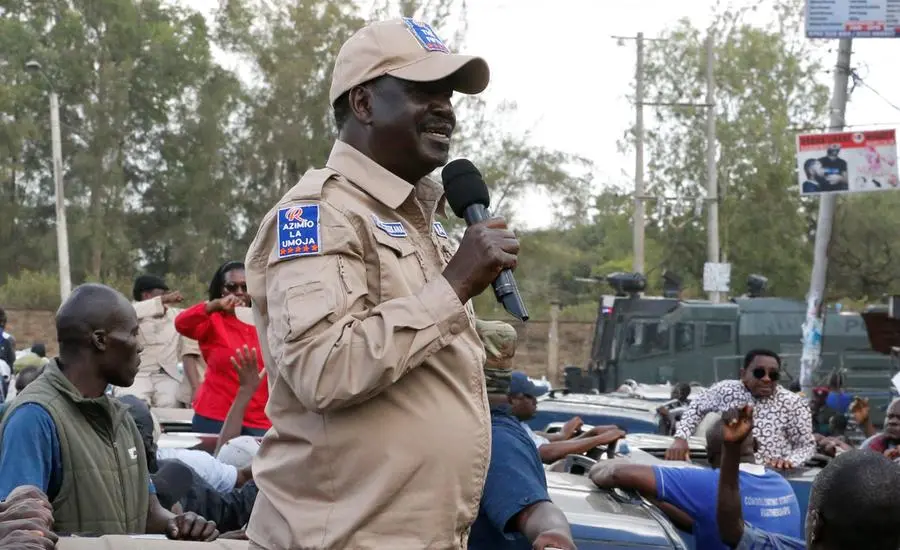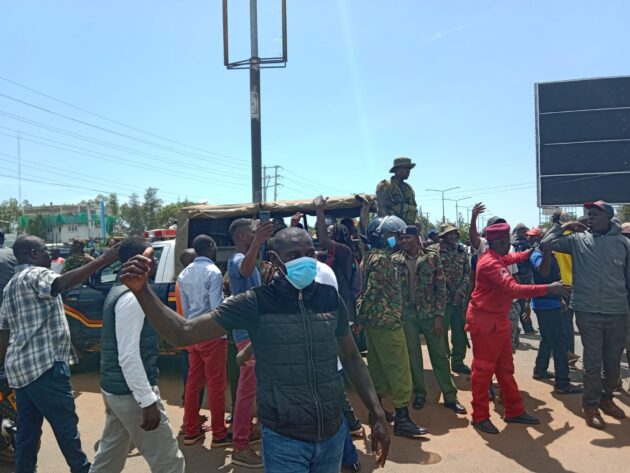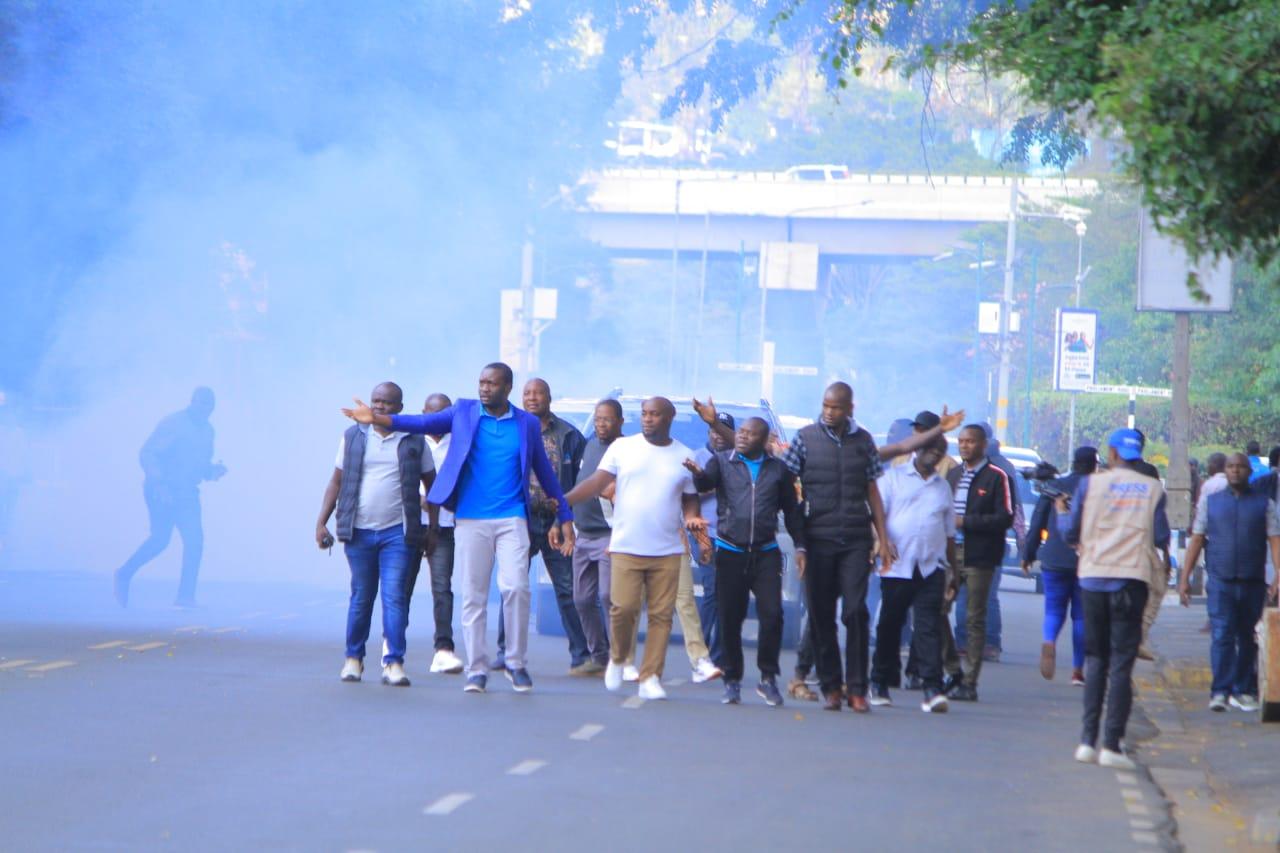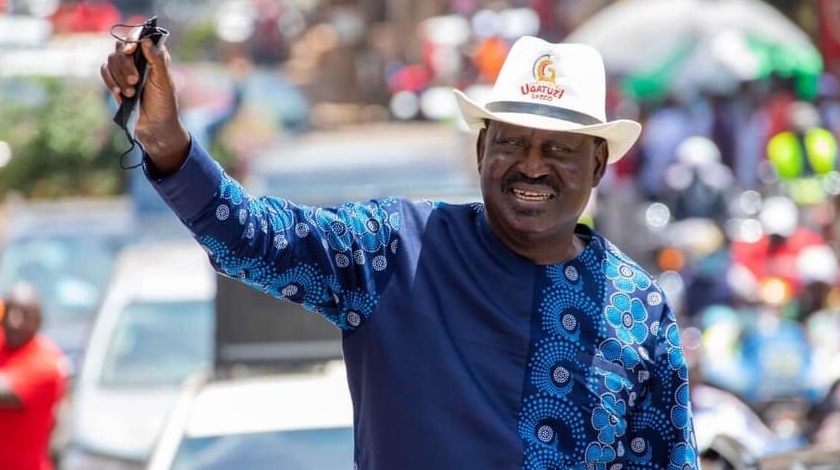As a result of today's police blockade of Jacaranda grounds, opposition leader Raila Odinga has called for the most significant protest ever to take place on Monday of the following week.

According to Odinga, if the Kenya Kwanza Alliance government does not heed their requests through negotiations, they will be forced to hold rallies all around the nation to further their cause.
"We are extremely rational people, and we think that we have very good reasons why we need to talk," Odinga added. "But if the other side is not willing to engage, these demonstrations will continue."
There will be another demonstration on Monday. Regardless of what our critics say or think, the mother of all rallies will happen on Monday, he declared at a press conference in Karen.
Did you read this?
Notwithstanding the heavy-handed tactics used by police to prevent Azimio supporters from staging protests in many regions of the nation, Odinga stated that they would continue to fight for electoral change and a reduction in the high cost of living.
He denounced the police officers' abuse of journalists during the demonstration, as some were hurt when tear gas canisters were fired at their car while they were providing live coverage.
"It is quite terrible that the media is being gravely attacked in the midst of these confrontations. The teargas canisters that have been flung left, right, and center have hurt several journalists today", according to Odinga.
The majority leader of the National Parliament, Kimani Ichungwa, and the deputy president, Rigathi Gachagua, were accused by the leader of the opposition party of planning an attack on journalists during the protest.

He said that a plan had been planned to assault Royal Media Services without offering any supporting information.
We knew they intended to attack Uhuru's farm, homes, and royal media facilities. I learned about Gachagua, Ichungwa, and Ndindi Nyoro from reliable sources," Odinga said.
He continued, "These are people who belong in jail; these are not the people we call the Deputy President and Majority Leader".
To reduce living expenses, The Azimio Leader is pressuring President William Ruto's administration to reverse its decision to eliminate subsidies on essential food staples.
According to Odinga, "regardless of what the IMF or the World Bank says, we are seeking for the subsidies that were implemented to alleviate the suffering of our people because of the conditions beyond the control of our country, to be restored."
AzimioProtests
He was speaking after organizing protests in Embakasi West's Pipeline and Imara Daima.
Together with other leaders, he was attended by Martha Karua, the leader of Narc Kenya; Kalonzo Musyoka, the former chief of staff for defence, Eugene Wamalwa; George Wajacoyah, the head of the Roots Party, and Jeremiah Kioni, the secretary general of Jubilee.

Odinga disobeyed a government order not to stage protests in the capital, and police were prepared for a considerable altercation with him at the Jacaranda grounds in Nairobi.
A significant clash is expected when hundreds of police officers gather at the Jacaranda Fields.
A water cannon and at least five police cars were strategically positioned around the playing area.
On Thursday, the third day of opposition protests against the government and the high cost of living, there was some violence in Kenya.
Security was tight, with police roaming the city of Nairobi in riot gear after violent altercations broke out at similar protests on Monday.
On Thursday, scores of protesters engaged police in running skirmishes, throwing rocks, and setting tires on fire. The officers retaliated with tear gas in the crowded Nairobi areas of Mathare and Kibera.
Protesters also threw rocks at police and ignited bonfires in the middle of the road in western Kenya's lakeside strongholds of Kisumu and Homa Bay, home to opposition leader Raila Odinga.
Every Monday and Thursday, Odinga has called for rallies, accusing President William Ruto of stealing last year's election and failing to rein in the rising cost of living.
On previous days, the government-proclaimed illegal demonstrations grew violent, with police using tear gas, water cannons, and occasionally live ammunition while looters went on the rampage.
According to government statistics, 51 police officers, 85 civilians, and two civilians have been slain.
The international community and religious leaders have urged restraint, expressing concern that the violence may spiral into the kind of interethnic conflict that followed the 2007 election and resulted in more than 1,100 fatalities.









